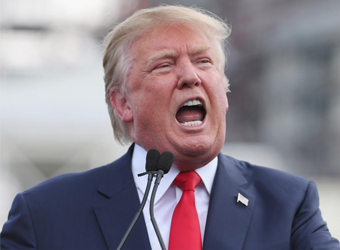President Donald Trump’s decision to withdraw from the Paris climate agreement could be a major setback to the global effort to slow climate change, but it won’t slow state-level efforts.
The push to promote renewable energy sources, underway in 37 states and the District of Columbia, has already produced a marked slowing in the growth of carbon emissions, and the impact can be measured from one state to another.
Renewable energy policies help drive the nation’s $44 billion market for wind, solar and other renewable esources. Those policies are designed to help states diversify their energy production, promote economic development and reduce emissions.
Twenty-nine states, Washington, D.C., and three territories have adopted a formal plan to boost renewable energy, while eight states and one territory have set goals related to renewables.
In states with mandatory standards, utilities are required to generate and sell a set portion of power output using renewable sources. Some states have applied the mandates only to investor-owned utilities, others include municipalities and electric cooperatives.
The measures have spurred investment in renewable energy, creating a market estimated by the U.S. Energy Information Administration at $44 billion a year.
The goal of the Paris Agreement, which was signed by nearly 200 countries, is to prevent global temperatures from rising by more than 2 degrees Celsius above pre-industrial levels.
The United States is the world’s second-biggest carbon polluter, after China. Source: CNBC
Source: CNBC


